Follow Us
Medical & Health Sciences Latest
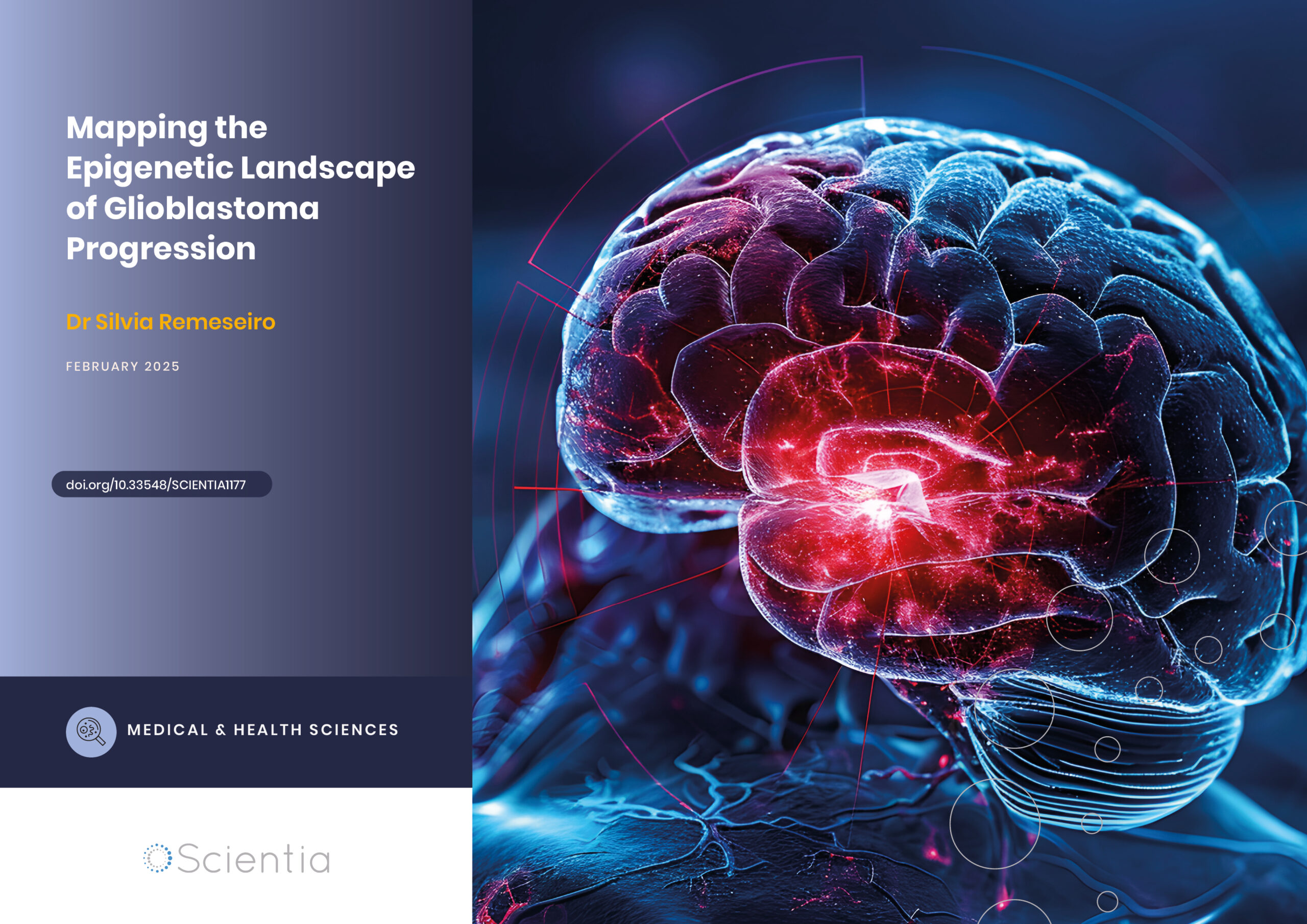
Dr Silvia Remeseiro | Mapping the Epigenetic Landscape of Glioblastoma Progression
By Mr Jack LatusGlioblastoma, the most aggressive form of brain cancer, continues to challenge medical professionals with its poor survival rates. Recent groundbreaking research by Dr Silvia Remeseiro and her colleagues at...

Dr Markus Stumm | Advances in Screening for Genetic Abnormalities with Non-invasive Prenatal Testing
By Mr Jack LatusNon-invasive prenatal testing (NIPT) is a method of screening for genetic abnormalities in the unborn child through a simple blood sample taken from the mother. The non-invasive nature of the test has minimal to no risk to the mother and foetus...

New Directions for Reproductive Lifespan and Healthspan
By Mr Jack LatusBalancing starting a family with career goals is a difficult challenge many women have to face, which can lead to inequalities in various aspects of their lives. Dr Zhongwei Huang and the team at NUS Bia-Echo Asia Centre for Reproductive...

Dr Markus Regauer | An Evidence-Based Perspective on Treating Severe Ankle Injuries
By Mr Jack LatusAnkle injuries are very common but notoriously difficult to treat due to the complexity of the ankle anatomy, compounded by the range of surgical options available. Dr Markus Regauer, a leading orthopaedic surgeon from SportOrtho Rosenheim and...
Earth, Environment & Agricultual Sciences
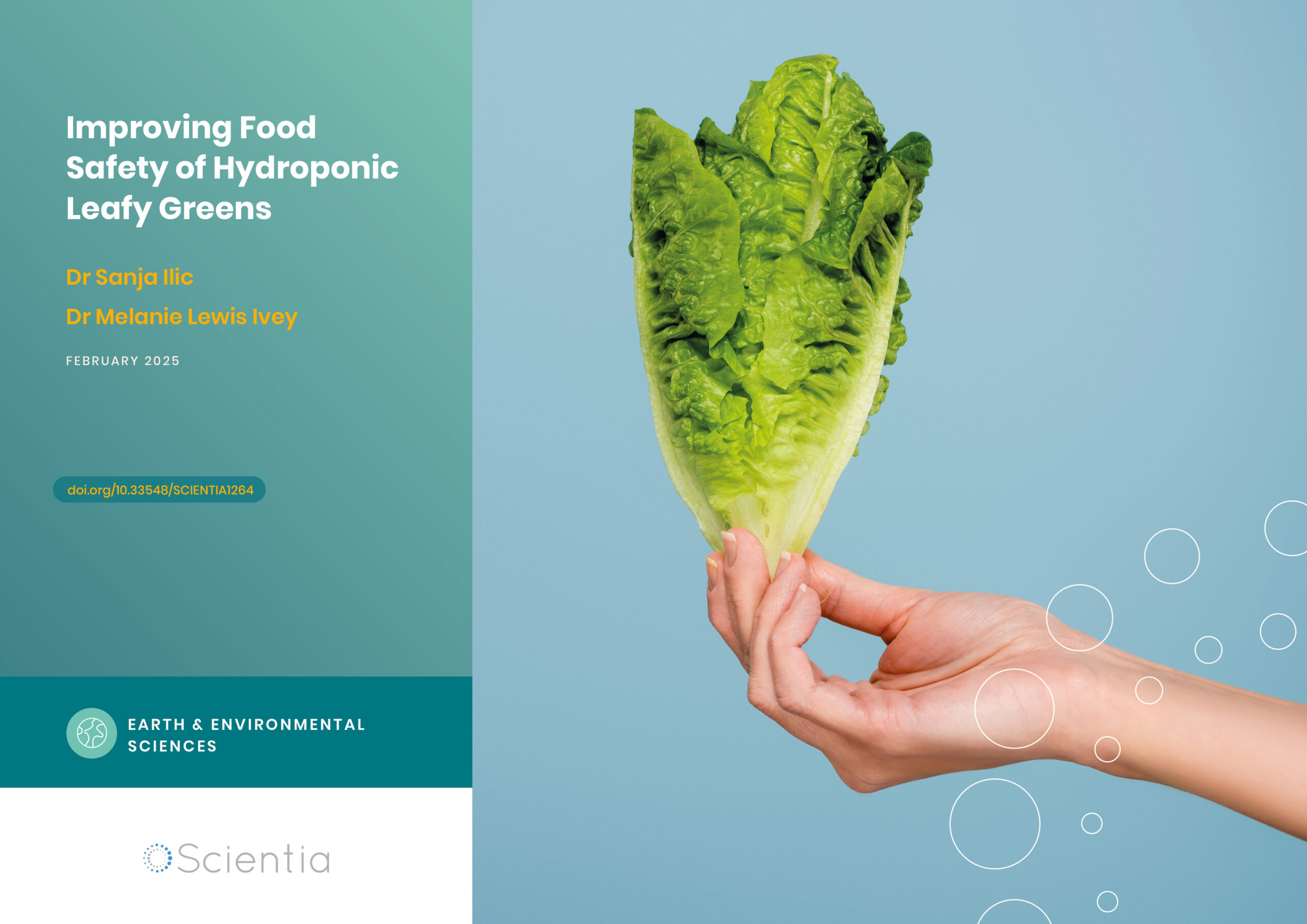
Improving Food Safety of Hydroponic Leafy Greens
Hydroponic farming is experiencing rapid growth worldwide, offering a sustainable and efficient method of producing fresh, nutrient-rich crops. However, the unique conditions of hydroponic systems also present complex food safety challenges. Dr Sanja Ilic and Dr Melanie Lewis Ivey, researchers at The Ohio State University, are at the forefront of efforts to understand and mitigate the risks of human pathogen contamination in commercial hydroponic production. Their pioneering work is providing crucial insights and practical guidance to help ensure the safety and nutritional value of hydroponically grown leafy greens.
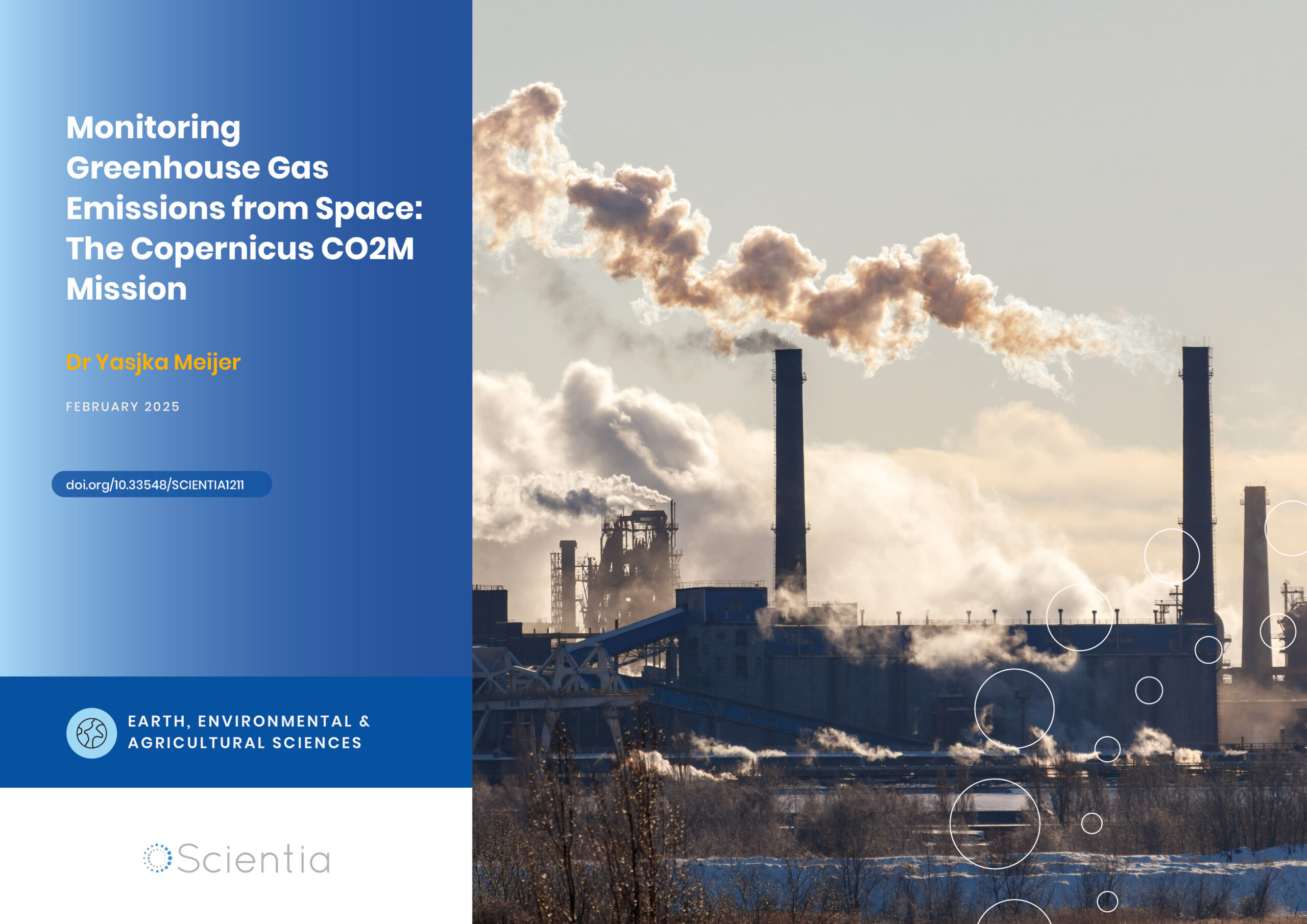
Dr Yasjka Meijer | Monitoring Greenhouse Gas Emissions from Space: The Copernicus CO2M Mission
By Mr Jack LatusAtmospheric concentrations of carbon dioxide (CO2) and methane (CH4) have been steadily rising due to human activities, contributing to global climate change. Dr Yasjka Meijer from the European Space Agency is responsible for the objectives and...

Renewable Fuel for a Generation of Green Batteries
By Dr Thomas Guarr and Dr David Hickey Revolutionizing energy production has been integral to combatting climate change and reducing our dependence on limited natural resources, but complementary advances in energy storage have been lacking. Dr Thomas Guarr...

RK Pete Wade | Seeing the Wood for the Trees – A Better Way to Measure Forest Density
In the world of forestry, understanding how densely packed trees are in a given area is crucial for effective forest management. However, traditional methods for measuring this ‘stand density’ have limitations. Now, a new approach developed by an independent...
Physical Sciences & Mathematics Latest

Renewable Fuel for a Generation of Green Batteries
Revolutionizing energy production has been integral to combatting climate change and reducing our dependence on limited natural resources, but complementary advances in energy storage have been lacking. Dr Thomas Guarr and Dr David Hickey from Michigan State University lead their team in investigating a counterintuitive molecular mechanism which could support a wave of green, renewable, and cheap batteries. If practical, this technology might be the crucial leap towards an entirely green energy system.
Engineering & Computer Science Latest

Dr Paul Robertson | Artificial Intelligence in the Cockpit: New Systems Could Help Prevent Aviation Accidents
Despite significant advances in aviation safety over recent decades, accidents still occur that could potentially be prevented with better warning systems. Dr Paul Robertson of Dynamic Object Language Labs, Inc. (DOLL) is leading groundbreaking research into how artificial intelligence could help pilots avoid dangerous situations. His team’s work reveals promising developments and important cautions about implementing AI in aircraft cockpits, with implications for the future of aviation safety.
Arts, Humanities & Social Sciences Latest

Understanding the Magna Moralia: Associate Professor George Karamanolis and Dr Solmeng Hirschi
The Magna Moralia is one of the three ethical works attributed to Aristotle in antiquity, next to the Eudemian Ethics and the Nicomachean Ethics. However, the Magna Moralia has not been studied as extensively as the other two treatises, with research focusing largely on the question of authorship and much less on the ethical theory. The team at the University of Vienna aims to establish a new critical edition of the Magna Moralia, to offer a fresh English translation, and to prepare a philosophical commentary. The project will enable a future re-appreciation of the Magna Moralia while contributing to a better understanding of the development of Aristotelian ethics.
Life Sciences & Biology Latest

Illuminating Neanderthal Resilience and Adaptability through Cutting-Edge Zooarchaeology
Neanderthals, our closest extinct human relatives, have often been portrayed as brutish and primitive compared to modern humans. But new research is shedding light on their true capabilities. Eboni Westbury from the Australian National University is part of a team investigating how Neanderthals adapted and thrived in challenging Ice Age environments. Their work at the Abric Pizarro rock shelter in Spain reveals new insights into the complex behaviours and survival skills of these ancient people.

Dr Benjamin Bradley | Cause, Consequence, and Natural Selection: A New Vision of Darwin’s Psychological Work
The theory of evolution by natural selection stands at the heart of modern biology. But what exactly is the causal status of natural selection in evolution? Dr Benjamin Bradley from Charles Sturt University in Australia is challenging long-held assumptions,...

Professor JoAnne S. Richards | Revealing the Secrets of the Ovary
Professor JoAnne S. Richards conducts her vital research at the Baylor College of Medicine in Houston, Texas, in the USA. For decades she has investigated how certain hormones regulate ovarian function at particular stages of the menstrual cycle, as well as...

Professor Sung-Hou Kim | New Insights into Ethnic and Genomic Diversity
Does our ethnic diversity translate to genomic diversity? New findings suggest that it might not and point instead to considerable genomic similarities across multiple ethnicities. Professor Sung-Hou Kim at the University of California, Berkeley, and his...
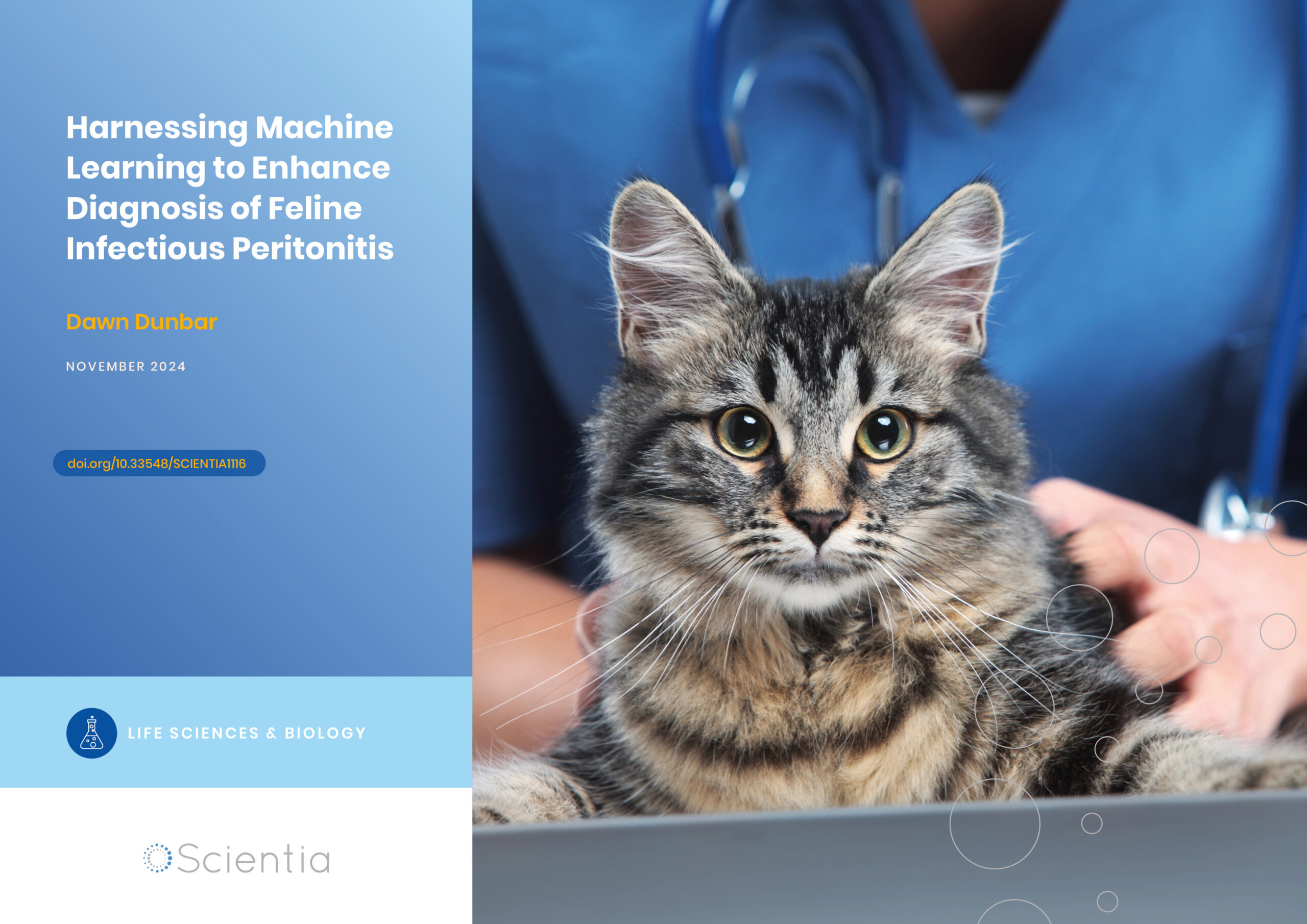
Dawn Dunbar | Harnessing Machine Learning to Enhance Diagnosis of Feline Infectious Peritonitis
Feline infectious peritonitis (FIP) is a severe and often fatal viral disease of cats which poses significant diagnostic challenges for veterinarians. Dawn Dunbar from the University of Glasgow is leading a research study with the goal of applying machine...

Professor Irene Díaz-Moreno – Professor Miguel A. De la Rosa | The Diverse Interactome of Cytochrome c: Beyond Respiration
All living things are comprised of cells, and to function, most of them use oxygen to break down food molecules to obtain chemical energy, a process known as cell respiration. Critical to this is the macromolecule cytochrome c, but this redox haemoprotein also...
Education & Training Latest

The BASIL CURE Initiative: Transforming How Students Learn Biochemistry Through Real Research
Teaching students how to think like scientists is a critical but challenging goal in biochemistry education. The Biochemistry Authentic Scientific Inquiry Lab (BASIL) initiative was conceived by Dr Paul Craig from the Rochester Institute of Technology and is led by colleagues across multiple institutions. They have developed an innovative curriculum that transforms traditional cookbook-style laboratory courses into authentic research experiences, also known as a Course-based Undergraduate Research Experience (CURE). By investigating real proteins with unknown functions, students learn essential scientific skills while expanding our knowledge of protein biochemistry.

Professor Jean-Anne Stewart | Making Virtual Action Learning Effective for Leadership Development
New research shows that virtual action learning can be just as beneficial as face-to-face sessions for developing leadership skills, when implemented thoughtfully. A UK study of over 300 senior leaders by Professor Jean-Anne Stewart of Henley Business School at...
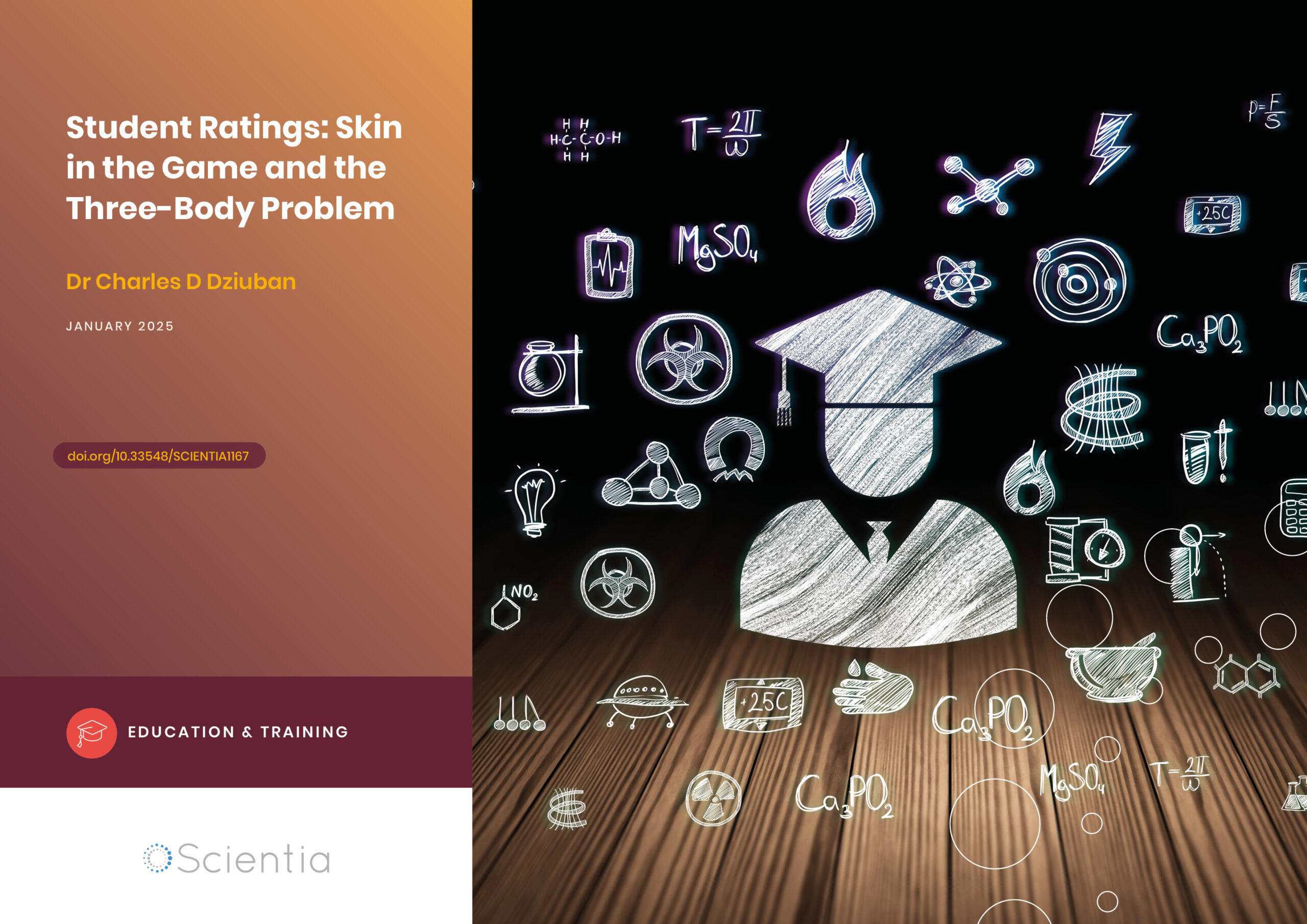
Dr Charles Dziuban | Student Ratings: Skin in the Game and the Three-Body Problem
An ongoing concern in higher education is how to include the student voice in teaching. Dr Charles Dziuban has dedicated much of his career to examining student and faculty outcomes as well as gauging the impact of online, blended and lecture capture courses in...
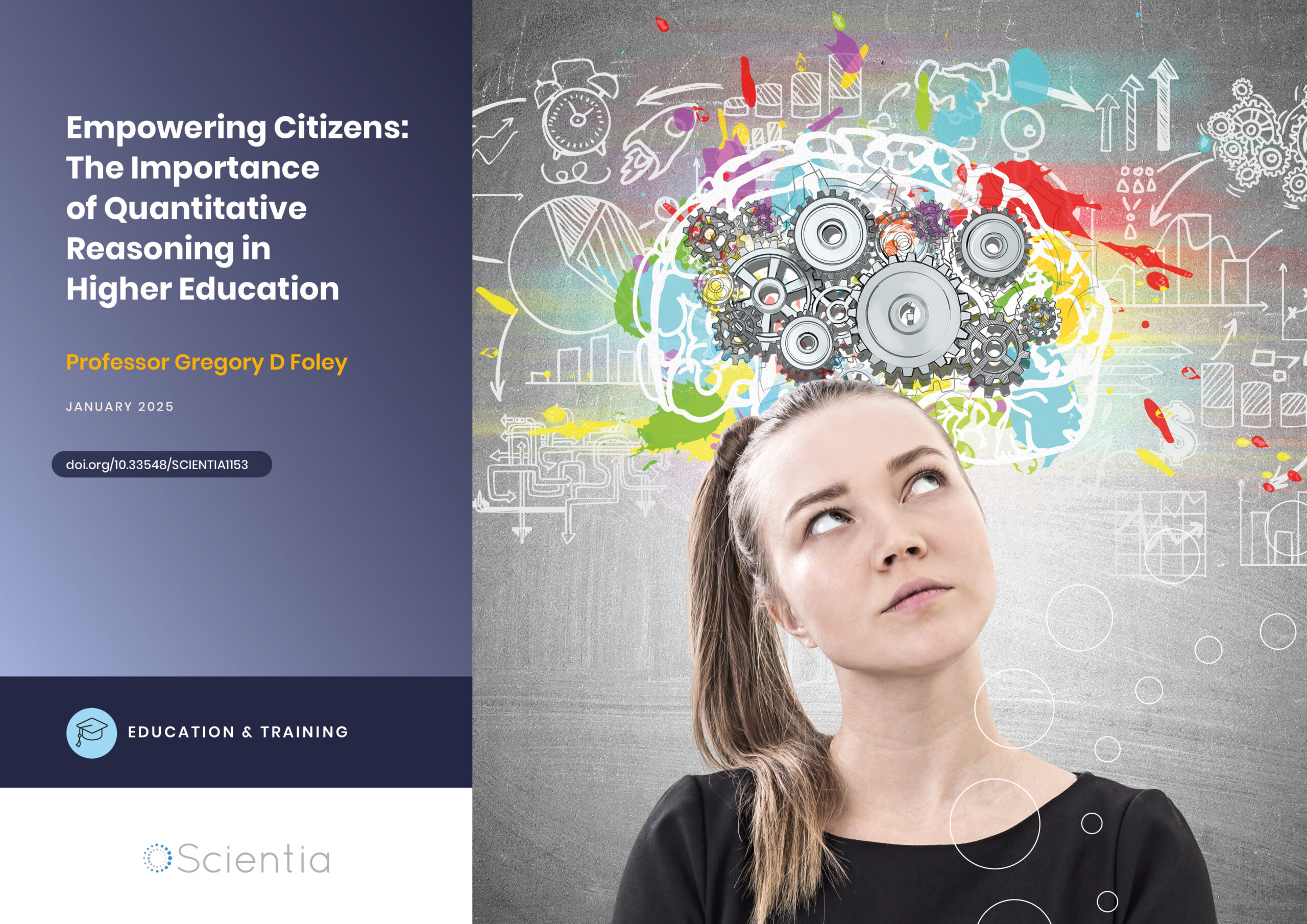
Professor Gregory D Foley | Empowering Citizens: The Importance of Quantitative Reasoning in Higher Education
Despite a growing emphasis on Quantitative Reasoning in education, particularly as universities develop courses that move beyond traditional math, its role in fostering critical citizenship remains underexplored. Professor Gregory D Foley’s research studies the...
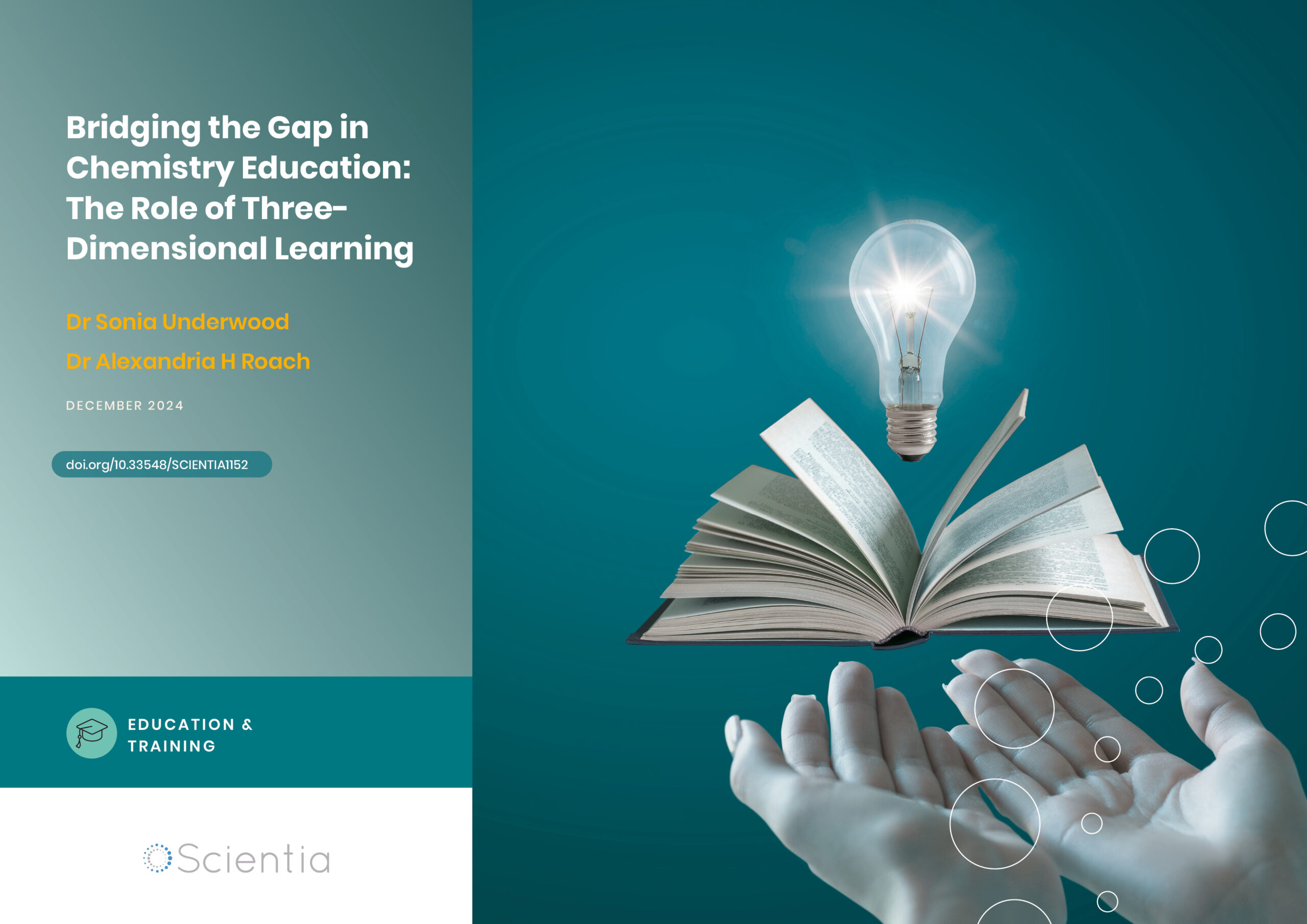
Dr Sonia Underwood | Bridging the Gap in Chemistry Education: The Role of Three-Dimensional Learning
Understanding complex concepts in chemistry can be challenging for students, especially in large classes where individualised attention is limited. Traditional multiple-choice questions often focus on rote memorisation rather than deep understanding. Dr Sonia...

Dr Aimie Brennan | Challenging the Changing Landscape of Initial Teacher Education
Initial teacher education in Ireland was reconceptualised in 2011 to embody a more practical, solution-based ethos in place of the traditional emphasis on foundational subjects such as sociology. Dr Aimie Brennan of the Marino Institute of Education and Dr...
Psychology & Neuroscience Latest

Dr Benjamin Bradley | Cause, Consequence, and Natural Selection: A New Vision of Darwin’s Psychological Work
The theory of evolution by natural selection stands at the heart of modern biology. But what exactly is the causal status of natural selection in evolution? Dr Benjamin Bradley from Charles Sturt University in Australia is challenging long-held assumptions, arguing that Darwin himself saw natural selection as a consequence of other processes, not a cause of evolution in its own right. This crucial distinction opens up new perspectives on how evolution relates to psychology and behaviour.

Professor Steven Wayne Evans | Making a Difference for Adolescents with Attention-Deficit/Hyperactivity Disorder
Tailored interventions are required if adolescents with Attention-Deficit/Hyperactivity Disorder (ADHD) are to meet their full potential. Research by Professor Steven Evans at Ohio University illuminates the effectiveness of these interventions and offers...

Dr Robert W Stackman, Jr – Dr Sarah J Cohen | Of Mice and Matching: When Rodents Show They Can Match Pictures to Objects
Researchers at Florida Atlantic University have discovered that mice possess a sophisticated cognitive ability previously thought to be limited to primates and certain bird species – they can recognise real objects after only seeing pictures of them. This...

Dr Dagmar Zeithamova | How Our Brains Create Categories: A Look Inside the Mind
Our brains have an incredible ability to organise information into meaningful categories, allowing us to make sense of the world around us. However, this categorisation process can also bias how we perceive and remember this world. Dr Dagmar Zeithamova and her...

Leadership – How Does Successful Leadership Work in Times of Change?
Article written by Dr Barbara Nuetzel Challenges for Leaders in Today’s World The digital revolution has changed our world – ‘VUCA’ – the conditions which now shape the lives of many people worldwide. VUCA stands for volatility, uncertainty, complexity, and...

Professor Marco Cavaglià | Unlocking the Brain’s Hidden Code: The Lipid-Centred Theory of Brain Functioning
For decades, scientists have explored how the brain processes information, stores memories, and generates thoughts. Traditional theories focus on the electrical and chemical signals exchanged between neurons. However, a new and innovative approach is emerging,...
Business, Economics & Finance Latest

Professor Jean-Philippe Bouchaud | The Inelastic Market Hypothesis: Explaining the Origins of Financial Fluctuations
What drives movements in asset prices? Are markets efficient, with prices reflecting underlying fundamentals, or do uninformed trades impact prices long-term? Professor Jean-Philippe Bouchaud from Capital Fund Management and Académie des Sciences has devoted his career to developing models that can explain the complex dynamics of financial markets. His work provides compelling evidence that order flow itself, rather than just incoming information, is the primary driver of price changes. This finding has important implications for our understanding of markets and the strategies of traders, fund managers and policymakers.

Christopher Gilbert | A Thorough Inquiry into Copper Super-Cycles
Understanding super-cycles is crucial for stakeholders such as investors, policymakers, and industry leaders as it offers insights into long-term trends and dynamics in commodity prices. Christopher Gilbert plays a pivotal role in providing stakeholders with the...

Dr Britta Holzberg | Stitching Together a Fairer Future: Insights from the Global Garment Industry
The global garment industry spans continents, cultures, and livelihoods. Ensuring decent work for the millions employed in its factories is an urgent concern. Dr Britta Holzberg has worked to unravel this intricate web through in-depth case studies in Egypt and...

Stephen O’Byrne | Why Academic Research Has Done Little to Solve the Problems of Executive Pay
Competitive target pay is a basic principle of modern executive pay, embraced by corporate directors, compensation consultants and proxy advisors. Providing a high percent of pay in stock (or other incentive pay) is a second basic principle of modern executive...

Dr Michal Franta – Dr Jan Libich | Distribution Tails, Recession Risks and Macroeconomic Policies
Article written by Dr Michal Franta of the Czech National Bank and Dr Jan Libich of La Trobe University/VSB-TUO. The Global Financial Crisis of 2007–2009 ignited significant reconsideration of financial and economic policies, spurring extensive research efforts...

Professor Karen Hogan | Uncovering the Financial Fallout of Cyber-Attacks
In our increasingly digital world, cyber-attacks pose a significant threat to corporations with their potential to disrupt operations, damage reputations, and ultimately impact shareholder value. Because these attacks are getting more sophisticated, companies...

Scientia Issue #151 | Building Brighter Futures Through Research
In this first issue of 2025, Scientia showcases the exciting work of researchers who, in vastly different ways, share the common goal of helping build a brighter future for us and for our future generations. Across the spectrum of scientific inquiry and research, we can read about groundbreaking advances in our understanding of society and culture, health and disease, our world and the universe, and much more.

Scientia Issue #150 | Big Ideas for a Better World
Big Ideas for a Better World This riveting issue of Scientia showcases some of the biggest new ideas across science, research, and technology. While we face many challenges, from climate change to cancer, epidemics to economic...

Scientia Issue #149 | Scientific Strategies for People and Planet
Scientific Strategies for People and Planet This latest issue of Scientia showcases the researchers making innovative advances in improving the health and well-being of people across the globe, as well as those dedicated to ensuring...

Scientia Issue #148 | New Horizons in Research and Discovery
New Horizons in Research and Discovery In this latest issue of Scientia, we showcase some of the most exciting recent advances in research and discovery. Disease, poverty, war, inequality, and climate change are just some of the...

Scientia Issue #147 | Driving Positive Change Through Research and Innovation
DRIVING POSITIVE CHANGE THROUGH RESEARCH AND INNOVATION This inspiring issue celebrates the work of researchers who are driving positive change for the future across diverse disciplines. The Earth and Environment section...

Scientia Issue #146 | Pushing Boundaries in Science and Research
PUSHING BOUNDARIES IN SCIENCE AND RESEARCH This riveting issue of Scientia showcases recent advances across excitingly diverse fields of study, spanning agriculture, linguistics, physics, healthcare, economics, and much more....
PUBLIC ACCESS

No paywalls. No subscription barriers. No language barriers. Simple, instant public access to science—opening a dialogue between science and society.
CREATIVE COMMONS

We publish under the Creative Commons Attribution-NonCommercial 4.0 (CC BY-NC 4.0)
DECLARATION ON RESEARCH ASSESSMENT (DORA)

We support and encourage the DORA initiative
OPEN ACCESS POLICY

Scientia adheres to the open access policy. Open Access (OA) stands for unrestricted access and unrestricted reuse.
DOI

Scientia is officially registered with CrossRef making our research content easy to find, cite, link, and assess.
NO AI

All research articles published by Scientia are crafted by a talented team of humans, without any AI input
